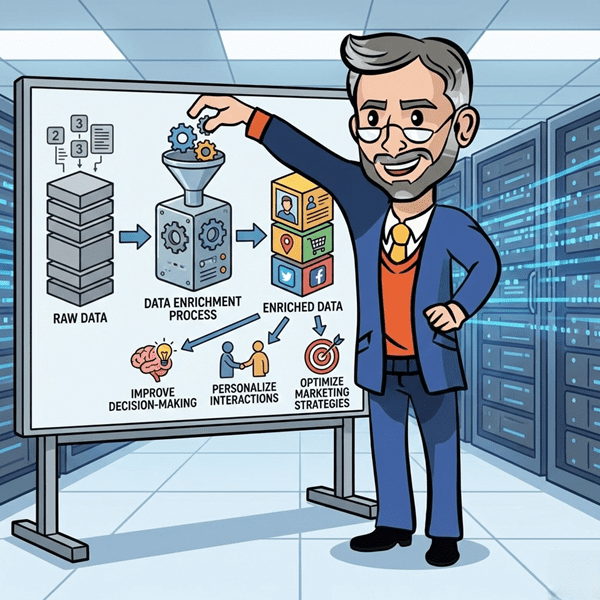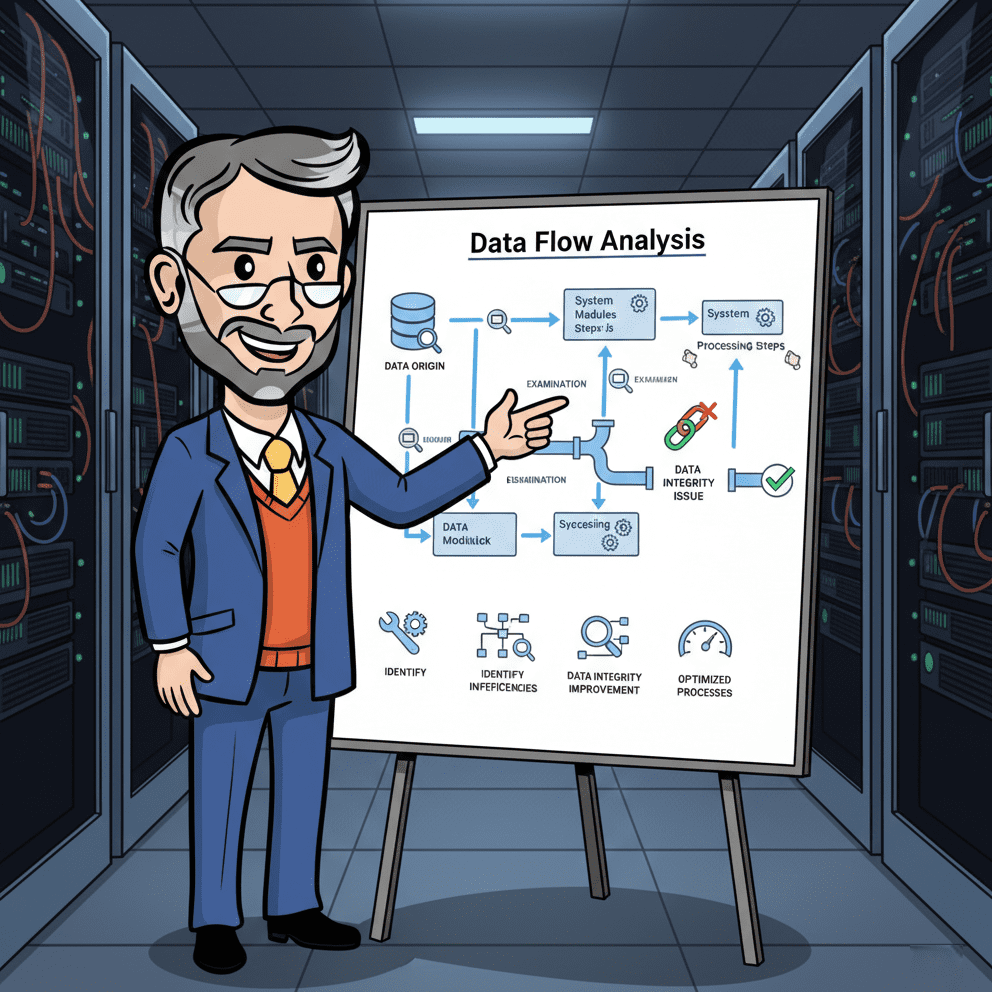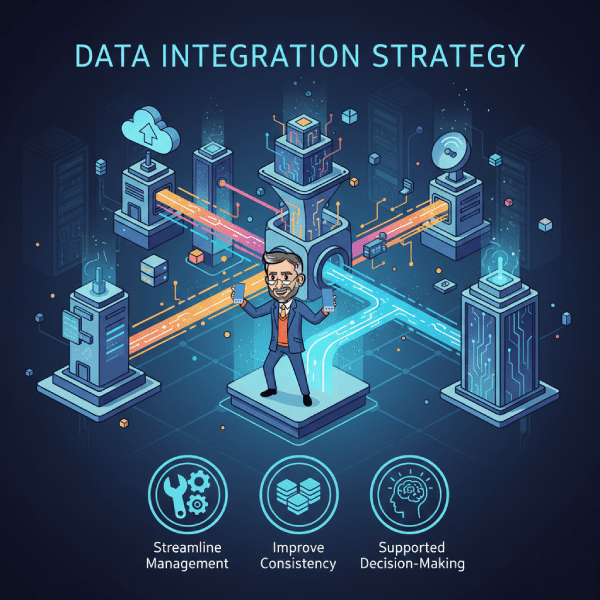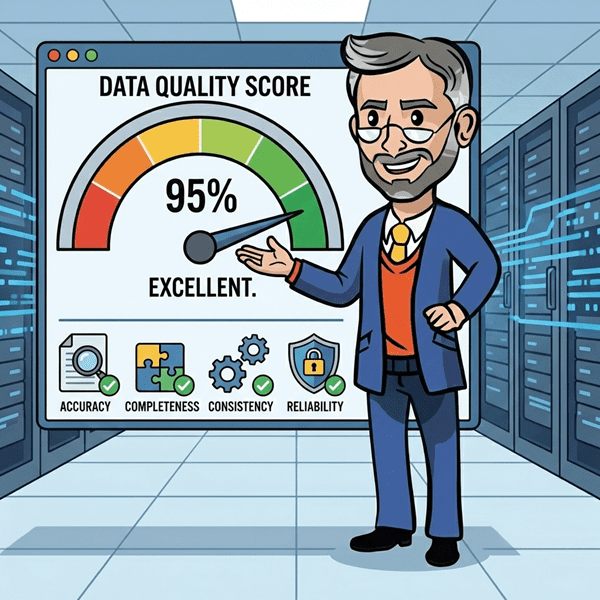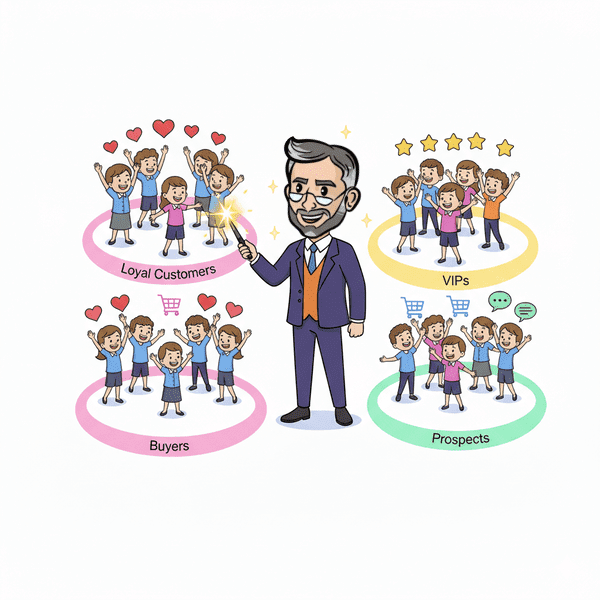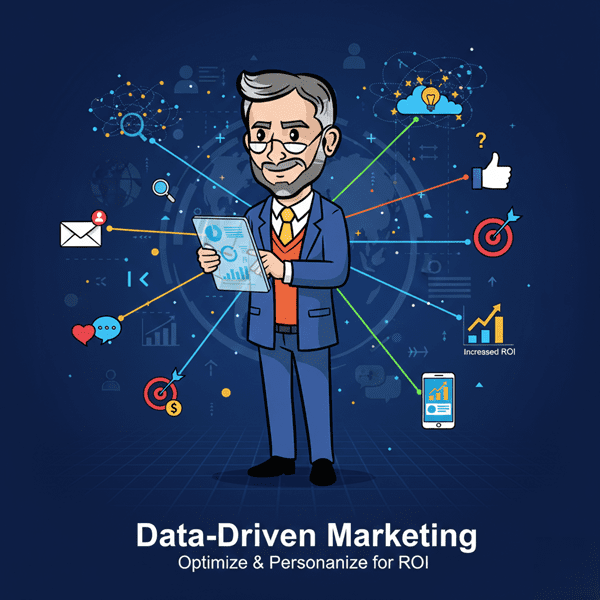Definition: A data segmentation strategy is the approach businesses use to divide customer or prospect data into smaller, meaningful groups based on shared characteristics—such as demographics, behaviours, purchase history, or engagement level. This allows companies to deliver more targeted marketing, personalised experiences, and relevant offers that resonate with each segment.
Use it in a Sentence: The retailer applied a data segmentation strategy to target frequent buyers with loyalty discounts and new customers with welcome offers.
What Is a Data Segmentation Strategy?
A strong data segmentation strategy is essential for businesses leveraging hyper-personalization algorithms to deliver targeted customer experiences. By breaking down large audiences into smaller, meaningful segments, brands can ensure that personalized messaging truly aligns with each customer’s preferences and behavior. This is especially valuable for startups looking to scale efficiently while maintaining a personal touch.
Why a Data Segmentation Strategy Matters

- Enhanced Personalization at Scale: When combined with hyper-personalization algorithms, segmentation allows brands to go beyond basic targeting—delivering tailored content, offers, and experiences that reflect each user’s individual journey.
- Stronger Customer Relationships: Smart segmentation ensures that communications feel relevant and timely, which builds trust and long-term loyalty—key ingredients for success, particularly in competitive startup environments.
- Better Use of Resources: By focusing marketing efforts on high-value segments, businesses can reduce waste, improve ROI, and scale more efficiently.
- Improved CRM Hygiene: Effective segmentation requires clean, organized data. Prioritizing CRM hygiene ensures that customer information is accurate and up-to-date, making segmentation more reliable and impactful.
Key Components of a Data Segmentation Strategy
- Data Collection & Enrichment: Gathering information from various sources—web behavior, email interactions, purchase history, and social media—sets the foundation for precise segmentation.
- Behavioral & Demographic Analysis: Identifying patterns in how users behave and who they are helps define actionable segments for marketing and sales.
- Integration with Hyper-Personalization Algorithms: Segmentation fuels hyper-personalization algorithms, enabling dynamic content, product recommendations, and automated workflows that adapt in real-time.
- Segment Testing & Optimization: Regularly testing how different segments respond to messaging helps refine both the segments and the personalization tactics being used.
- Data Maintenance & CRM Hygiene: Maintaining healthy data through ongoing CRM hygiene ensures segments stay relevant over time. For startups, building good data habits early pays off as they grow.
More Definitions
- Funnel Mapping Definition – The process of visualizing and optimizing the customer journey through different stages of a sales funnel.
- Lead Segmentation Definition – Categorizing leads based on behaviors, demographics, or engagement levels to improve marketing strategies.
- Data Cleansing Definition
What is data cleansing? Learn how cleaning and standardizing your data improves marketing accuracy, compliance, and performance. - Lookalike Audience
A targeted group that shares similar traits and behaviours with an existing customer base.






